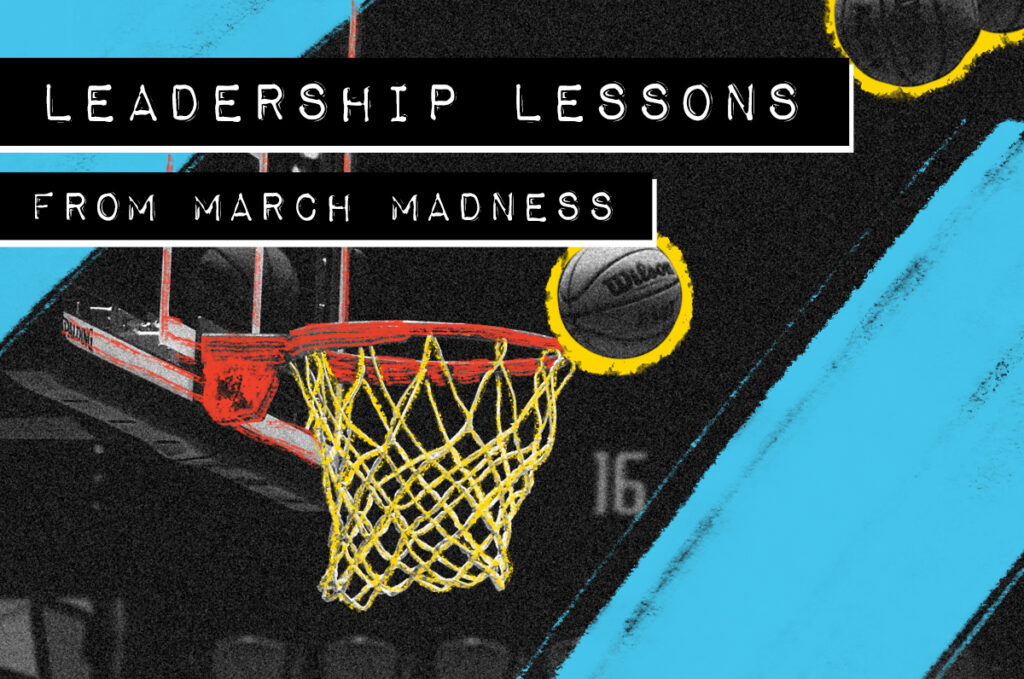
No one expects a Cinderella run.
That’s the whole point, right? They’re the team that’s overlooked. Undervalued. The underdog who got lucky—or so it seems. The team that wasn’t supposed to make it far.
But is it really luck?
Or is it a mix of skill, discipline, and choosing to show up? At SNP, we’re betting on the latter. They’re the ones who keep their heads down, their eyes up, and their game sharp. It’s not just being in the right place at the right time—it’s about having the right mindset—every time. To commit, to lead, to be excellent—it’s all a choice.
We’ve been talking a lot about this idea lately. So when we listened to A Martínez’s recent Morning Edition interview with Martenzie Johnson, breaking down March Madness and what makes a great “Cinderella team,” we couldn’t help but see the parallels to great leadership:.
Cinderella Teams vs. Great Leaders
| NPR | SNP |
| Star player that shines when the lights are brightest | A leader who turns the halogen lights off themselves and onto the audience |
| You have to make 3-pointers—and play defense | You need sharp skills and the presence to act in the moment |
| You have to rebound | You have to rebound |
Turn the Halogen Lights Onto the Audience
Great leaders don’t hog the spotlight—they redirect it. They shine it on their teams, their stakeholders, their audience. That takes discipline.
Here’s the practical version: Ask yourself, Who is my audience, and what do they care about?
Then ask it again. And again. Let that question edit your slides, shape your delivery, and calm your nerves. Let it be your guide when you’re presenting, pitching, or giving tough feedback.
Leaders who ask that question regularly actually start connecting with their audience.
Sharp Skills and Presence in the Moment
A Cinderella team sinks those three-point shots because they’ve practiced them—relentlessly. Not just when it’s easy—but under duress and stress. Over and over and over again. So when it’s game time, adrenaline’s pumping, and the stakes are high, they’re confident they can take the shot.
Leaders do the same.
They practice. They get on camera. They seek out feedback. They tighten up their eye contact, their volume, their gestures. They build muscle memory, so when it’s go-time, they’re ready.
Rebound. Rebound. Rebound.
It may be true that the higher you get within an organization, the less unfiltered truth you receive, even if you’ve made a mistake. You have to choose to seek out feedback, ask the hard questions, and encourage pushback. You have to find your blind spots.
The greats—on the court and in the conference room—don’t just recover. They get better. That’s why rebounding matters so much. Not just bouncing back—but learning forward. So get feedback. Handle pushback. Miss the shot, and take it again.
The Buzzer Beater
Cinderella stories aren’t just about surprise wins. They’re about grit. Choice. The discipline to do the work when no one’s watching.
That’s leadership.